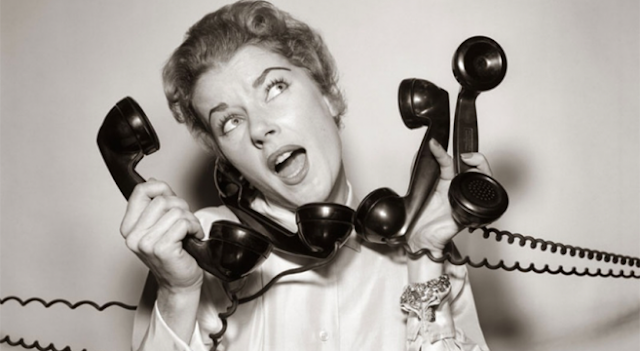Event Resurrection: The Benefits' Index
Image source: https://www.ketchum.com/event-marketing
Almost every marketing newsletter, channel, post, blog is agog with one of these following words: mobile, big data, analytics, social. So, almost at the risk of sounding Jurassic, I am writing this post about event marketing benefits.
This article comes after the How Not to Go Crazy Series: event social media marketing, publicity and press for events - since I felt this was one area that should have preceded those topics, here it is.
Isn't event marketing prehistoric?
Well, no. Upwards of $500 billion are spent on events globally per year (1).
And that money doesn't get spent unless there is RoI. A well balanced marketing mix would comprise a fair share of online, offline and/or events. If you don't conduct events, you miss out on a lot - building on brand visibility, new product launches (remember Apple's epic product launches?) reconnecting with lost customers, getting introduced to new prospects / customers.
So why don't we conduct more events?
Executive leadership (and sometimes marketers as well) are slightly skeptical as it is hard to provide & substantiate the RoI of an event. Unlike online marketing, event marketing is much more complex and risky and RoI tracking is difficult as well. In these days of multi-channel customer acquisition, it does take more than one channel to convert a prospect. Even though an event may have generated the lead first, the lead maturation channel ultimately wins the spotlight - unless you have extremely sophisticated lead tracking / maturity softwares.
As a marketer, how is conducting events important for me?
Events are an integral part of the demand generation mix. Unlike an email, a cold call or a one to one sales interaction, an event offers a personalized interaction in a social setting, amongst other similar buyer groups / prospects, target audience. An event also offers a unique opportunity for offline and online extensions (monetizable virtual extensions of your event).
Any other form of customer touch-point (email, inside sales, adverts) represents an intrusion in the customers' way of life (your email in the midst of their routine email scanning, your call just as they are about to attend an important meeting, your ad pops up just as they are about to browse something important online). Even though you may choose any of the above mediums to promote your event - an event can be something that the customer can choose to attend (or ignore). However, whatever decision s/he makes, the customer comes to the brand with a higher degree of acceptability than the other marketing channels.
What is the key to a successful event?
An event should be much more than just a "staged advertisement" for the brand (2). Customers appreciate an event much more when they feel that the take-away has been more for them than the brand - and customers are astute at doing the math. Any attempt at less than subtle, credible marketing might turn off potential prospects completely.
What are the benefits of event marketing?
Brand building
No surprises here - an integral reason to conduct an event is brand building. Whether you are a customer brand just starting out or a well established brand launching a new brand extension, nobody gets brands like events. Events offer certain degree of controll-ability over the event parameters that can convey the very essence of the brand [ a luxury brand launching its new collection at the very venue that conveys sophistication, elegance and power. The very choice of attendees, the kind of press, the ambience influence and create in the minds of your consumer the aesthetics of your product]. Through the event attributes, you are showcasing the very personality of your brand (Is it uber-premium? Elitist? Aspirational? Which of these three?) Try conveying this through an email - it would be a uni-dimensional rendering of your big idea.
Lead Generation
One of the most important times during an event is the breaks. Networking time is a goldmine. And invariably, its leads to new business connections and lead generation.
You can design lead creation opportunities at the event based on your value proposition prongs - if you have different customer segments attending your event, try having different "hooks" for them at the event. A blanket, one-size-fits-all strategy would turn off your prospects. Have something that is unique and customizable for your major customer groups.
Customer Engagement
One email, one click, one response. Finito. You cannot build as much engagement into an email as much as you can do in an event - You can build in strategic engagement points into an event for key customers [read The CTO Breakfast, the CMO luncheon, cocktail interactions, round table meetings]. You can have exclusive sessions devoted to your top 10 (or so) customers. Unlike other channels, where the engagement matrix is restricted, at an event, you can design and own the engagement strategy.
Profile building
An event leads to profile building all through - Google I/O, Apple WWDC, Microsoft Build, TechCrunch Disrupt,Gartner’s Symposium/ITxpo - names synonyms with the biggest event properties that have developed over the years. Who wouldn't want a successful event brand? The press certainly loves it because it gives them the ultimate sound / print byte - impressive array of speakers, glitz, exclusive features, industry announcements.
The Math & The Magic
Why do people attend TEDx? Watch the Oscars? The Olympics? Is it the degree of surprise? Big events apparently have it all: the stars, sponsors, excitement, curiosity, press and the X-factor. And it is not easy to design a memorable event.
Looking to design memorable impactful events? Watch out for the next post here.
References
1. A Practical Guide to Measuring Event Success, DoubleDutch, 2015
2. The Definitive Guide to Event Marketing, Marketo
3. State of B2B Event Marketing, B2B Event Marketing Survey Report October 2014, Regalix Research
4. Juan Carlos Perez, March 2016, Top 33+ mobile and IoT conferences in 2016, TechBeacon




Comments
Post a Comment